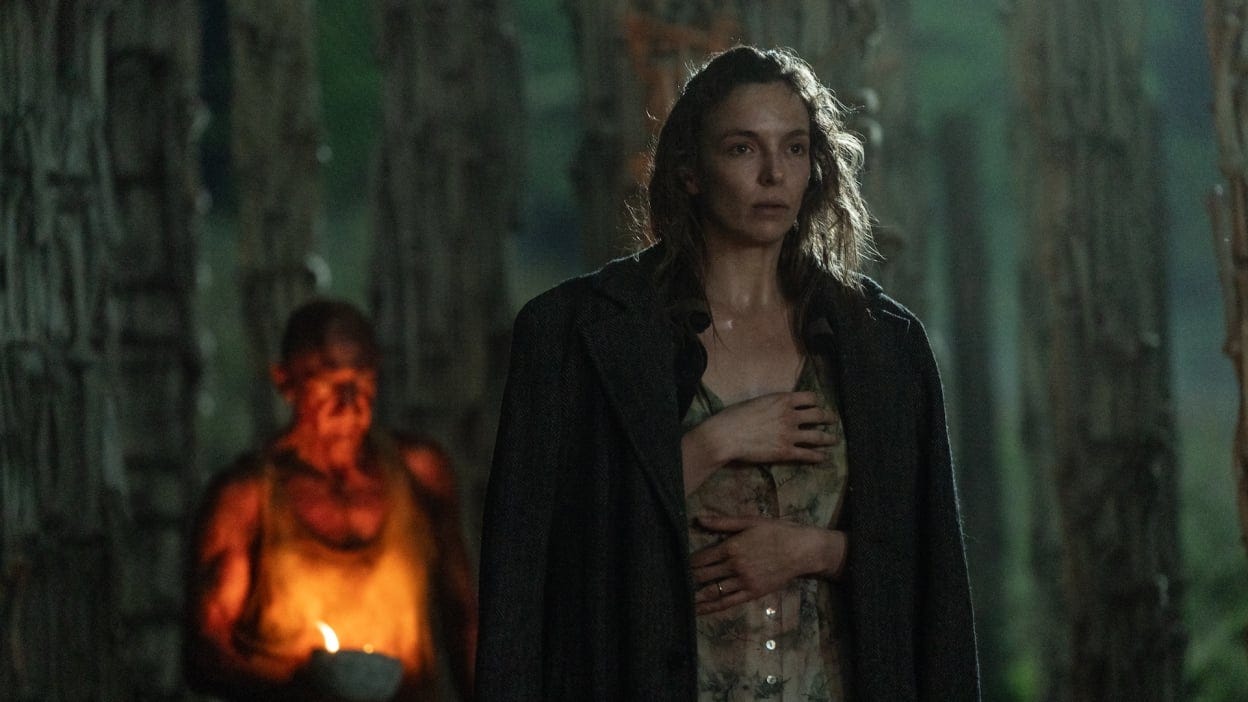Days. Weeks. Years.
A bold new direction for an otherwise uncertain franchise
So much has changed since the release of 28 Days Later. At the time, the rage virus and its resulting running zombies were a fresh way of injecting new excitement into the genre. Combine the threat of those zombies with the shaky camera and the fuzziness of the digital format, and you have a recipe for genuine horror. What set the film apart further, was in the novelty of its setting in Great Britain. It's a film that embraces its setting by putting the isle in a doomsday filter with an intimacy only locals can excel at. The cast has some of the best chemistry of zombie films I've seen. The group of survivors with Jim (Cillian Murphy) as a lead really connects with me. The moments of intimacy of them growing close over its runtime make me truly care about them, with appropriate heartbreak in the face of tragedy. This is truly the heart of what makes 28 Days Later special: it’s as much of a road trip film as a zombie one, a perfect microcosm of early 2000s indie drama films. 28 Weeks Later was always a poor pairing with the first, with its only crowning glory being the first seven minutes. The inconsistency of that sequel leaves 28 Years Later with a much lower bar to clear. It’s practically a direct sequel to the first film.
28 Years Later in many ways feels like an anti-sequel. It's a very atmospheric film that doesn't focus so much on the impact of the zombie infection as it does on setting the stage for a less familiar world. Its timeline places it so far from the events of the first film that it offers a lot of room for things to get weird. It’s much harder connecting with the central characters this time around. The point of reference that they live in is much more divorced from the first group of survivors. They aren’t mourning what was lost but instead live a tribal existence that is designed to justify itself through its traditions. It's an attempt to provide order to their world, but one that leaves those that struggle with mental illness like Isla (Jodie Comer) powerless to improve their condition. It has hints of familiar imbalance to our own world, and it’s no doubt intentional as a form of meta commentary. The use of sound and visual montage containing militaristic imagery is presented in contrast to our male leads as they stalk weak infected as prey. Like The Walking Dead and The Last of Us, there is an evolution in the zombies that gives them an added level of threat and complexity, even hinting at levels of an underlying humanity. They’ve also aged in some cases to the point of losing function. These contrasting forces make the film less about pure survival and more about making sense of a chaotic world.
The music from Young Fathers is incredible, evoking an immediate dark and soulful tone throughout the film. Their music also acts as a grounding force that provides some semblance of order for the chaos on display. Combined with the hazy and colorful visuals of the mainland surrounding Lindisfarne, I knew I was in for something that was strange, which is fitting with Alex Garland's previous work. The diversity of tactics and motives of different survivor groups brings to mind the anarchic chaos that unfolds in Apocalypse Now, a persistent influence in Garland’s work (Annihilation, Civil War). I can imagine a Jim in this environment developing the same cynicism as Cap. Willard. I can see how viewers would hope for a resurgence of the first film’s tone. That isn’t unreasonable, considering that the previous collaborators are behind this entry. I appreciate the fact that they don't attempt to catch that same lightning in the bottle and try to lean into the weirdness of what the isle would be twenty-eight years later from the events of the first film. It’s bold for them to make a trilogy out of this. It can’t help but feel cynical in a franchise-dominant industry. If they take advantage of what they've set with this first part of the trilogy, it has potential for the pure sake of riskier experimentation. I never asked for a sequel to 28 Days Later, so I might as well get something interesting.




